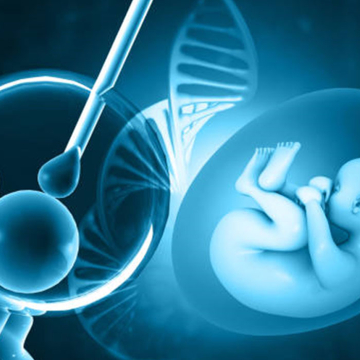
Does a Surrogate Mother Transfer DNA to the Baby?
The idea of surrogacy became a reality a long time ago. Women who couldn’t carry a kid or were at high risk throughout pregnancy were nonetheless permitted to have children.
Today, surrogacy is a successful and thoroughly studied method of treating infertility. However, there is still much stigma, confusion, and controversy surrounding surrogate pregnancies. Whether or if the child will have the surrogate mother’s DNA is a pretty frequent concern every surrogacy agency hears.
No, is the short response. No matter how a baby is conceived, they all inherit the genetic makeup of their parents. As a result, the surrogate mother has little to no genetic material contribution. The answer to this query is more complicated than a simple yes or no.

Traditional and gestational surrogacy
Making a distinction between traditional and gestational surrogacy is critical.
If they are able to generate an egg, most women choose gestational surrogacy. The surrogate carries the kid using the intended parent’s genetic material. Additionally, the egg is fertilized ahead of time and placed within the surrogate’s womb. Therefore, upon conception, the gestational carrier does not contribute any DNA.
About the placenta and its role
The placenta separates the mother’s DNA from that of the fetus during pregnancy. The placenta develops concurrently with the embryonic development of the fetus. Being a gatekeeper is the placenta’s main function. It gives the developing infant food and nutrition.
The placenta is also one of the key keepers of the fetus’s integrity. It is selectively permeable as a result; only some things may get through to the infant. Most of the carrier’s DNA will remain on the other side of the placenta.
Because of this, only few cells from the carrier will reach the kid. That’s obviously a positive thing. It might be harmful for both the carrier and the baby if too many cells move between them.
The process of gestation is remarkable. It is still not flawless, though. As a result, cells can occasionally get through the placenta. Actually, it works both ways. As a result, the baby and the carrier interact in certain situations.
However, it makes no difference how few cells pass through the placenta. Yes, the cells do include the carrier’s genetic material. They have little ability to alter the baby’s genetic composition, though ‒ it’s just not how genetics work.

Does a surrogate mother affect the baby’s DNA?
The baby born through gestational surrogacy will inherit the intended parents’ genetic makeup. That will not be impacted in any way by the cells that pass through the placenta from the gestational carrier.
The surrogate mother still impacts the child in other ways, though. Of course, the baby is influenced by the surrogate mother’s diet and general health. Fundamentally, a surrogate pregnancy is no different from any other pregnancy. As a result, the gestational carrier needs to watch what she consumes. She must also lessen the stress and tension she experiences because those things have a big impact on the baby.
In gestational surrogacy, the surrogate mother does not contribute genetic material. She can, however, influence how the baby’s genes are expressed. Every environment impacts how genes are expressed, according to the field of epigenetics research. That includes the womb, the first environment. Delivering Dreams International Surrogacy Agency specialists will provide your surrogate baby with the best prenatal development possible.























